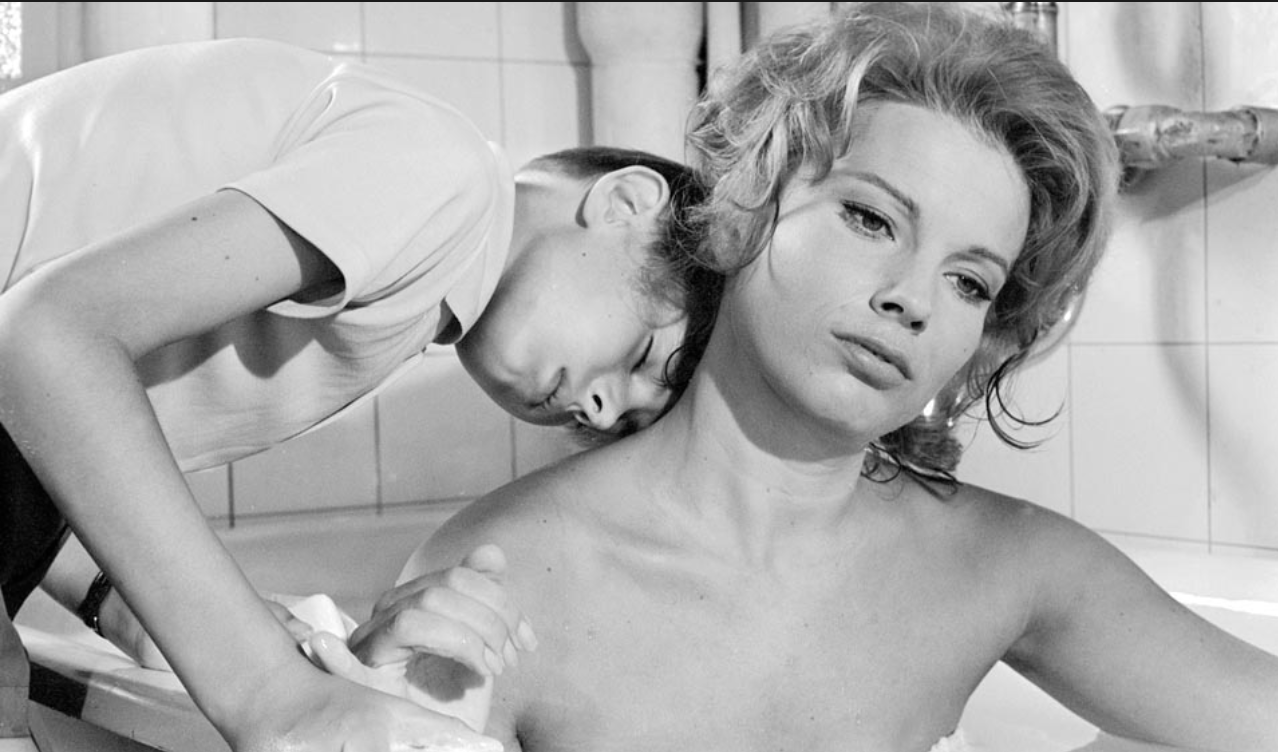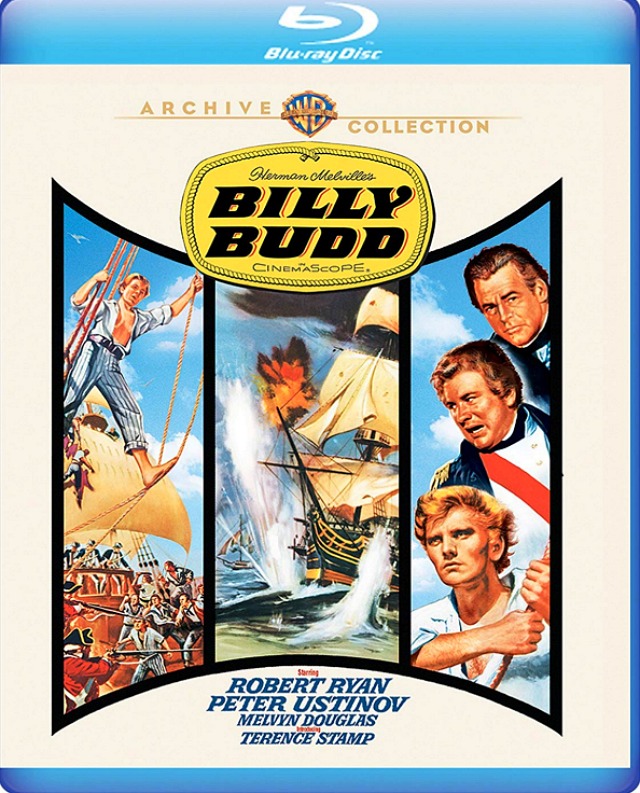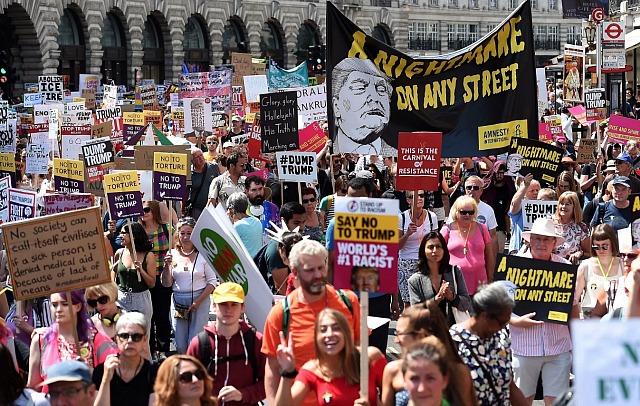On this, the 100th anniversary of Ingmar Bergman‘s birth (7.14.18), I am holding to my conviction that the darkest, hottest and most despairing Bergman film of all time is The Silence (’63). And therefore my favorite, in part because it’s so crystalline and unified — a perfect distillation of a sensual gloomhead mentality.
A ten year-old boy (Jorgen Lindstrom, who’s now 67) travelling with his ailing mother Ester (Ingrid Thulin) and her younger sister Anna (Gunnel Lindblom) through a grim Central European landscape, and then renting a couple of rooms at an old-world hotel. The boy watches as Anna settles into a kind of scowling sensual abandon. As always, Sven Nykvist‘s black-and-white cinematography is exquisite, and his capturings of of the sultry, vaguely self-disgusted Anna in various states of undress in that hotel room and bathroom are the stuff that lifelong dreams are made of. For me anyway.
I’m mentioning The Silence because you can’t buy a stand-alone Bluray version, not from Criterion or anyone else. You can watch it on Filmstruck and The Criterion Channel but I’m not yet a subscriber. (For whatever reason my initial reaction to Filmstruck was “a bridge too far” — lame, I realize.) It’s included in Criterion’s $239 Ingmar Bergman Bluray box set, and you can buy a DVD version in a 2003 Bergman trilogy package that includes Through A Glass Darkly and Winter Light. So right now it’s FilmStruck or nothing. Bummer.
In a 5.27.13 Criterion-posted essay, David Blakeslee wrote that “as significant as The Silence was in Bergman’s development as a filmmaker and person, there’s no doubt that it marked an even bigger advance in terms of expressive freedom in dealing with human sexuality, especially as it involved both nudity and the portrayal of women in pursuit of their own erotic fulfillment rather than as passive sex objects.
“With the Palme d’or winner Blue is the Warmest Color and Lars Von Trier‘s Nymphomaniac, we can trace a tangent that didn’t necessarily begin with Bergman’s 1963 masterpiece but is clearly continuous in using on-screen sex to drum up interest. And it works! Through its lasting influence and continuing beguilement as to what it’s all about, The Silence still makes a lot of noise.




